-
 Univers
Univers
-
 Ebooks
Ebooks
-
 Livres audio
Livres audio
-
 Presse
Presse
-
 Podcasts
Podcasts
-
 BD
BD
-
 Documents
Documents
-
- Cours
- Révisions
- Ressources pédagogiques
- Sciences de l’éducation
- Manuels scolaires
- Langues
- Travaux de classe
- Annales de BEP
- Etudes supérieures
- Maternelle et primaire
- Fiches de lecture
- Orientation scolaire
- Méthodologie
- Corrigés de devoir
- Annales d’examens et concours
- Annales du bac
- Annales du brevet
- Rapports de stage
La lecture à portée de main
The Book of Tea , livre ebook
32
pages
English
Ebooks
2021
Écrit par
Kakuzo Okakura
Publié par
Mint Editions
Vous pourrez modifier la taille du texte de cet ouvrage
Obtenez un accès à la bibliothèque pour le consulter en ligne En savoir plus
Découvre YouScribe en t'inscrivant gratuitement
Découvre YouScribe en t'inscrivant gratuitement
32
pages
English
Ebook
2021
Vous pourrez modifier la taille du texte de cet ouvrage
Obtenez un accès à la bibliothèque pour le consulter en ligne En savoir plus
Publié par
Date de parution
12 octobre 2021
Nombre de lectures
0
EAN13
9781513213798
Langue
English
Poids de l'ouvrage
2 Mo
The Book of Tea (1906) is a book-length essay by Okakura Kakuzō. Connected to the author’s overall project of celebrating Japanese culture and emphasizing the role of the East in creating the modern world, The Book of Tea is considered a classic work on the subject. His description of chadō, or teaism, remains incredibly influential in England and around the Western world. “[Teaism] insulates purity and harmony, the mystery of mutual charity, the romanticism of the social order. It is essentially a worship of the Imperfect, as it is a tender attempt to accomplish something possible in this impossible thing we know as life.” Part philosophy, part history, The Book of Tea explores the role of tea in shaping the arts and culture of Japan, China, and the world. Beginning with an investigation of the historical uses of tea, Okakura reflects on the specific techniques of tea brewing, the connections between tea and religion, and the interconnection of tea and the creative arts. Informative and meditative, The Book of Tea is an essential work for tea drinkers everywhere. With a beautifully designed cover and professionally typeset manuscript, this edition of Okakura Kakuzō’s The Book of Tea is a classic of Japanese literature reimagined for modern readers.
Publié par
Date de parution
12 octobre 2021
Nombre de lectures
0
EAN13
9781513213798
Langue
English
Poids de l'ouvrage
2 Mo
The Book of Tea
Okakura Kakuzō
The Book of Tea was first published in 1906.
This edition published by Mint Editions 2021.
ISBN 9781513215792 | E-ISBN 9781513213798
Published by Mint Editions®
minteditionbooks.com
Publishing Director: Jennifer Newens
Design & Production: Rachel Lopez Metzger
Project Manager: Micaela Clark
Typesetting: Westchester Publishing Services
C ONTENTS
I. T HE C UP OF H UMANITY
II. T HE S CHOOLS OF T EA
III. T AOISM AND Z ENNISM
IV. T HE T EA -R OOM
V. A RT A PPRECIATION
VI. F LOWERS
VII. T EA -M ASTERS
I
T HE C UP OF H UMANITY
T ea began as a medicine and grew into a beverage. In China, in the eighth century, it entered the realm of poetry as one of the polite amusements. The fifteenth century saw Japan ennoble it into a religion of aestheticism—Teaism. Teaism is a cult founded on the adoration of the beautiful among the sordid facts of everyday existence. It inculcates purity and harmony, the mystery of mutual charity, the romanticism of the social order. It is essentially a worship of the Imperfect, as it is a tender attempt to accomplish something possible in this impossible thing we know as life.
The Philosophy of Tea is not mere aestheticism in the ordinary acceptance of the term, for it expresses conjointly with ethics and religion our whole point of view about man and nature. It is hygiene, for it enforces cleanliness; it is economics, for it shows comfort in simplicity rather than in the complex and costly; it is moral geometry, inasmuch as it defines our sense of proportion to the universe. It represents the true spirit of Eastern democracy by making all its votaries aristocrats in taste.
The long isolation of Japan from the rest of the world, so conducive to introspection, has been highly favourable to the development of Teaism. Our home and habits, costume and cuisine, porcelain, lacquer, painting—our very literature—all have been subject to its influence. No student of Japanese culture could ever ignore its presence. It has permeated the elegance of noble boudoirs, and entered the abode of the humble. Our peasants have learned to arrange flowers, our meanest labourer to offer his salutation to the rocks and waters. In our common parlance we speak of the man “with no tea” in him, when he is insusceptible to the serio-comic interests of the personal drama. Again we stigmatise the untamed aesthete who, regardless of the mundane tragedy, runs riot in the springtide of emancipated emotions, as one “with too much tea” in him.
The outsider may indeed wonder at this seeming much ado about nothing. What a tempest in a tea-cup! he will say. But when we consider how small after all the cup of human enjoyment is, how soon overflowed with tears, how easily drained to the dregs in our quenchless thirst for infinity, we shall not blame ourselves for making so much of the tea-cup. Mankind has done worse. In the worship of Bacchus, we have sacrificed too freely; and we have even transfigured the gory image of Mars. Why not consecrate ourselves to the queen of the Camelias, and revel in the warm stream of sympathy that flows from her altar? In the liquid amber within the ivory-porcelain, the initiated may touch the sweet reticence of Confucius, the piquancy of Laotse, and the ethereal aroma of Sakyamuni himself.
Those who cannot feel the littleness of great things in themselves are apt to overlook the greatness of little things in others. The average Westerner, in his sleek complacency, will see in the tea ceremony but another instance of the thousand and one oddities which constitute the quaintness and childishness of the East to him. He was wont to regard Japan as barbarous while she indulged in the gentle arts of peace: he calls her civilised since she began to commit wholesale slaughter on Manchurian battlefields. Much comment has been given lately to the Code of the Samurai,—the Art of Death which makes our soldiers exult in self-sacrifice; but scarcely any attention has been drawn to Teaism, which represents so much of our Art of Life. Fain would we remain barbarians, if our claim to civilisation were to be based on the gruesome glory of war. Fain would we await the time when due respect shall be paid to our art and ideals.
When will the West understand, or try to understand, the East? We Asiatics are often appalled by the curious web of facts and fancies which has been woven concerning us. We are pictured as living on the perfume of the lotus, if not on mice and cockroaches. It is either impotent fanaticism or else abject voluptuousness. Indian spirituality has been derided as ignorance, Chinese sobriety as stupidity, Japanese patriotism as the result of fatalism. It has been said that we are less sensible to pain and wounds on account of the callousness of our nervous organisation!
Why not amuse yourselves at our expense? Asia returns the compliment. There would be further food for merriment if you were to know all that we have imagined and written about you. All the glamour of the perspective is there, all the unconscious homage of wonder, all the silent resentment of the new and undefined. You have been loaded with virtues too refined to be envied, and accused of crimes too picturesque to be condemned. Our writers in the past—the wise men who knew—informed us that you had bushy tails somewhere hidden in your garments, and often dined off a fricassee of newborn babes! Nay, we had something worse against you: we used to think you the most impracticable people on the earth, for you were said to preach what you never practiced.
Such misconceptions are fast vanishing amongst us. Commerce has forced the European tongues on many an Eastern port. Asiatic youths are flocking to Western colleges for the equipment of modern education. Our insight does not penetrate your culture deeply, but at least we are willing to learn. Some of my compatriots have adopted too much of your customs and too much of your etiquette, in the delusion that the acquisition of stiff collars and tall silk hats comprised the attainment of your civilisation. Pathetic and deplorable as such affectations are, they evince our willingness to approach the West on our knees. Unfortunately the Western attitude is unfavourable to the understanding of the East. The Christian missionary goes to impart, but not to receive. Your information is based on the meagre translations of our immense literature, if not on the unreliable anecdotes of passing travellers. It is rarely that the chivalrous pen of a Lafcadio Hearn or that of the author of “The Web of Indian Life” enlivens the Oriental darkness with the torch of our own sentiments.
Perhaps I betray my own ignorance of the Tea Cult by being so outspoken. Its very spirit of politeness exacts that you say what you are expected to say, and no more. But I am not to be a polite Teaist. So much harm has been done already by the mutual misunderstanding of the New World and the Old, that one need not apologise for contributing his tithe to the furtherance of a better understanding. The beginning of the twentieth century would have been spared the spectacle of sanguinary warfare if Russia had condescended to know Japan better. What dire consequences to humanity lie in the contemptuous ignoring of Eastern problems! European imperialism, which does not disdain to raise the absurd cry of the Yellow Peril, fails to realise that Asia may also awaken to the cruel sense of the White Disaster. You may laugh at us for having “too much tea,” but may we not suspect that you of the West have “no tea” in your constitution?
Let us stop the continents from hurling epigrams at each other, and be sadder if not wiser by the mutual gain of half a hemisphere. We have developed along different lines, but there is no reason why one should not supplement the other. You have gained expansion at the cost of restlessness; we have created a harmony which is weak against aggression. Will you believe it?—the East is better off in some respects than the West!
Strangely enough humanity has so far met in the tea-cup. It is the only Asiatic ceremonial which commands universal esteem. The white man has scoffed at our religion and our morals, but has accepted the brown beverage without hesitation. The afternoon tea is now an important function in Western society. In the delicate clatter of trays and saucers, in the soft rustle of feminine hospitality, in the common catechism about cream and sugar, we know that the Worship of Tea is established beyond question. The philosophic resignation of the guest to the fate awaiting him in the dubious decoction proclaims that in this single instance the Oriental spirit reigns supreme.
The earliest record of tea in European writing is said to be found in the statement of an Arabian traveller, that after the year 879 the main sources of revenue in Canton were the duties on salt and tea. Marco Polo records the deposition of a Chinese minister of finance in 1285 for his arbitrary augmentation of the tea-taxes. It was at the period of the great discoveries that the European people began to know more about the extreme Orient. At the end of the sixteenth century the Hollanders brought the news that a pleasant drink was made in the East from the leaves of a bush. The travellers Giovanni Batista Ramusio (1559), L. Almeida (1576), Maffeno (1588), Tareira (1610), also mentioned tea. In the last-named year ships of the Dutch East India Company brought the first tea into Europe. It was known in France in 1636, and reached Russia in 1638. England welcomed it in 1650 and spoke of it as “That excellent and by all physicians approved China drink, called by the Chineans Tcha, and by other nations Tay, alias Tee.”
Like all good things of the world, the propaganda of Tea met with opposition. Heretics like Henry Saville (1678) denounced drinking it as a filthy custom. Jonas Hanway (Essay on Tea, 1756) said that men seemed to lose their stature and c
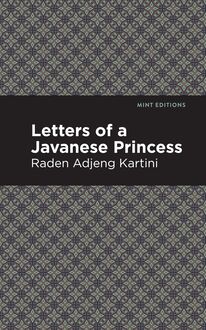
Ebooks
Letters of a Javanese Princess
Raden Adjeng Kartini

Ebooks
Sciences humaines et sociales
Letters of a Javanese Princess
Raden Adjeng Kartini
148 pages
English
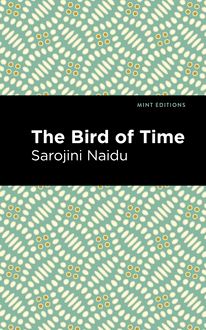
Ebooks
The Bird of Time
Sarojini Naidu


Ebooks
A Japanese Nightingale
Onoto Watanna


Ebooks
The Honorable Miss Moonlight
Onoto Watanna

Ebooks
Littérature sentimentale
The Honorable Miss Moonlight
Onoto Watanna
70 pages
English

Ebooks
The Diary of Delia
Onoto Watanna

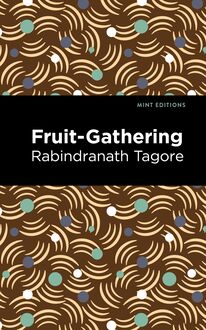
Ebooks
Fruit-Gathering
Rabindranath Tagore

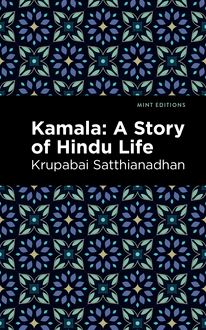
Ebooks
Kamala
Krupabai Satthianadhan


Ebooks
Me: A Book of Rememberance
Onoto Watanna


Ebooks
Glimpses of Bengal
Rabindranath Tagore


Ebooks
Miss Nume of Japan
Onoto Watanna

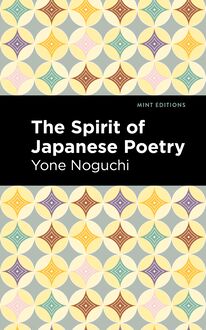
Ebooks
The Spirit of Japanese Poetry
Yone Noguchi


Ebooks
The King of the Dark Chamber
Rabindranath Tagore


Ebooks
The Post Office
Rabindranath Tagore

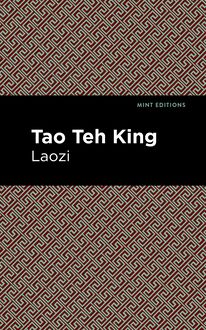
Ebooks
Tao Teh King
Laozi

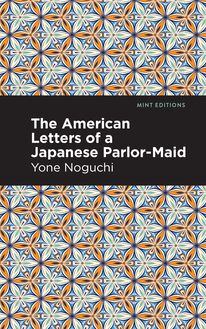
Ebooks
The American Letters of a Japanese Parlor-Maid
Yone Noguchi

Ebooks
Romans et nouvelles
The American Letters of a Japanese Parlor-Maid
Yone Noguchi
75 pages
English
-
 Univers
Univers
-
 Ebooks
Ebooks
-
 Livres audio
Livres audio
-
 Presse
Presse
-
 Podcasts
Podcasts
-
 BD
BD
-
 Documents
Documents
-
Jeunesse
-
Littérature
-
Ressources professionnelles
-
Santé et bien-être
-
Savoirs
-
Education
-
Loisirs et hobbies
-
Art, musique et cinéma
-
Actualité et débat de société
-
Jeunesse
-
Littérature
-
Ressources professionnelles
-
Santé et bien-être
-
Savoirs
-
Education
-
Loisirs et hobbies
-
Art, musique et cinéma
-
Actualité et débat de société
-
Actualités
-
Lifestyle
-
Presse jeunesse
-
Presse professionnelle
-
Pratique
-
Presse sportive
-
Presse internationale
-
Culture & Médias
-
Action et Aventures
-
Science-fiction et Fantasy
-
Société
-
Jeunesse
-
Littérature
-
Ressources professionnelles
-
Santé et bien-être
-
Savoirs
-
Education
-
Loisirs et hobbies
-
Art, musique et cinéma
-
Actualité et débat de société
- Cours
- Révisions
- Ressources pédagogiques
- Sciences de l’éducation
- Manuels scolaires
- Langues
- Travaux de classe
- Annales de BEP
- Etudes supérieures
- Maternelle et primaire
- Fiches de lecture
- Orientation scolaire
- Méthodologie
- Corrigés de devoir
- Annales d’examens et concours
- Annales du bac
- Annales du brevet
- Rapports de stage





